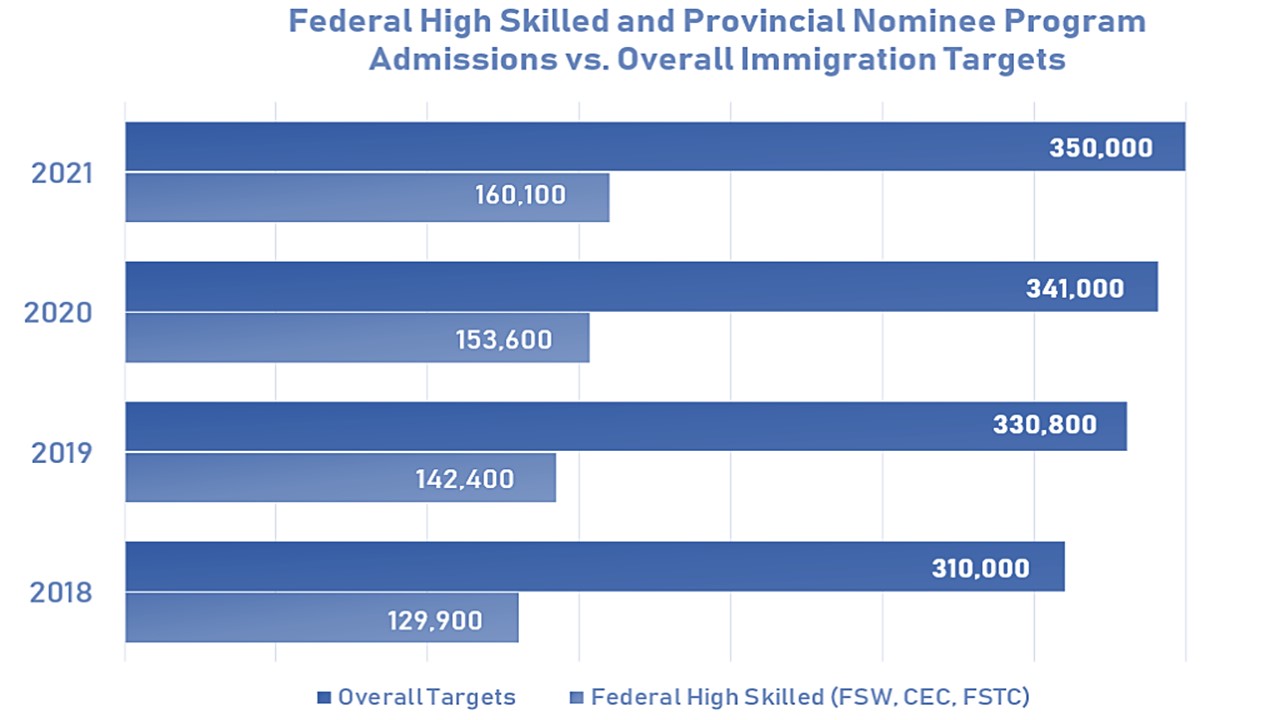Express Entry PNPs use different approaches to selecting candidates
At 600 points, a provincial nomination is the most valuable factor under Express Entry's Comprehensive Ranking System
Canada’s provinces employ a variety of approaches to selecting the Express Entry candidates they invite to apply for a provincial nomination for permanent residence, and the past week saw examples of three of them in action in Nova Scotia, Prince Edward Island and Ontario.
Express Entry candidates who receive a provincial nomination are awarded an additional 600 points toward their Express Entry ranking score, which makes a nomination the single most valuable factor and effectively guarantees an invitation to apply for Canadian permanent residence.
The different approaches used by Express Entry-linked provincial immigration pathways to select candidates in the past week were:
- First-come, first-served;
- Expression of Interest;
- Passive.
Canada’s Provincial Nominee Program (PNP) allows participating provinces and territories to nominate a set number of economic immigration candidates for permanent residence each year.
Each province and territory with a PNP has at least one stream for candidates in the federal Express Entry system, which manages the pool of candidates for Canada’s three Federal High Skilled economic immigration programs — the Federal Skilled Worker Class, the Federal Skilled Trades Class and the Canadian Experience Class.
In 2017, more than 17,000 of the 109,497 Express Entry candidates who applied for Canadian permanent residence had a provincial nomination, an increase of more than 4,000 from 2016.
A provincial nomination can be invaluable to Express Entry candidates who are looking to boost their Comprehensive Ranking System (CRS) score, which is used to determine a candidate’s ranking in the Express Entry pool.
The three PNP streams that we saw in action this week are especially popular with Express Entry candidates because they do not require a Canadian job offer or a minimum CRS score in order to be eligible.
Nova Scotia: First-come, first-served
On Saturday, November 17, Nova Scotia reopened Category B of its Demand: Express Entry Stream, which allows eligible Express Entry candidates to actively apply for a provincial nomination.
Category B is Canada’s last remaining example of a PNP category that operates on what is called a first-come, first-served basis. This means that, once it opens, it accepts applications from candidates in the order they are submitted until a quota is met, which usually occurs quickly.
The November 17 intake was typical of this highly competitive application process, reaching its quota of 225 applications in less than two hours.
In order to be eligible for Category B, Express Entry candidates aren’t required to have a job offer in Nova Scotia but they must have work experience in one of the province’s 11 opportunity occupations, among other criteria.
To read more about the eligibility requirements for Category B, consult this dedicated page.
Prince Edward Island: Expression of Interest
Nova Scotia’s fellow Maritime province, Prince Edward Island (PEI), also invited Express Entry candidates in a draw held November 15 through its Expression of Interest (EOI) system.
This system is used to rank Express Entry candidates who have made themselves visible to the PEI’s provincial nominee program, the PEI PNP, by also submitting a profile to the province.
EOI profiles are entered into PEI’s pool of eligible candidates for its Express Entry Category and they are ranked on the strength of scores awarded for factors such as education, work experience and proficiency in English or French.
PEI then selects candidates through monthly draws from the pool. Since switching to an EOI system in February, the PEI PNP has conducted 10 such draws.
PEI is one of a four provinces that now employ an EOI system to manage its pool of PNP candidates. Other provinces include British Columbia, Manitoba and Saskatchewan.
EOI systems are also used to manage the federal Express Entry pool and the candidates bank for the Quebec Skilled Worker Program.
Ontario: Passive
Another Express Entry-linked PNP pathway that we saw issue invitations to apply for a provincial nomination in the past week was one of Ontario’s three passive Express Entry streams.
Ontario’s streams — the Human Capital Priorities Stream, the French-Speaking Skilled Worker Stream and the Skilled Trades Stream — are considered passive because Express Entry candidates cannot actively apply or declare their interest in being considered for a nomination through them.
Instead, these streams allow the Ontario Immigrant Nominee Program (OINP) to search the federal Express Entry pool for candidates who match their eligibility requirements and invite them to apply for a provincial nomination.
The OINP relies heavily on these Express Entry-linked streams, which together have been responsible for 95 per cent of the 6,600 nominations issued by Ontario this year. The Human Capital Priorities Stream alone accounted for 3,534 nominations, followed by the French-Speaking Skilled Worker Stream at 1,476 and the Skilled Trades Stream at 1,445.
The stream that we saw issue new invitations in the past week was the French-Speaking Skilled Worker Stream, which has been issuing invitations on an almost weekly to Express Entry candidates who meet its French and English language proficiency criteria,
Submitting an Express Entry profile is the first required step in order to be considered by these OINP streams.
Looking ahead
Express Entry and Canada’s Provincial Nominee Program are set to play increasingly high-profile roles in Canada’s immigration strategy between now and 2021.
Combined admissions for Express Entry-managed programs and Canada’s PNP are projected to account for 142,400 new permanent residents in 2019. This represents 43 per cent of Canada’s target of 330,800 total new admissions to Canada next year.

Admissions of new permanent residents through Express Entry-linked PNPs have experienced significant growth in recent years, rising from 7,818 in 2016 to 13,528 in 2017 — an increase of 73 per cent, according to Immigration, Refugees and Citizenship Canada.
As this importance grows, it is possible that new and innovative approaches to selecting Express Entry candidates through Canada’s PNP streams will also emerge.

